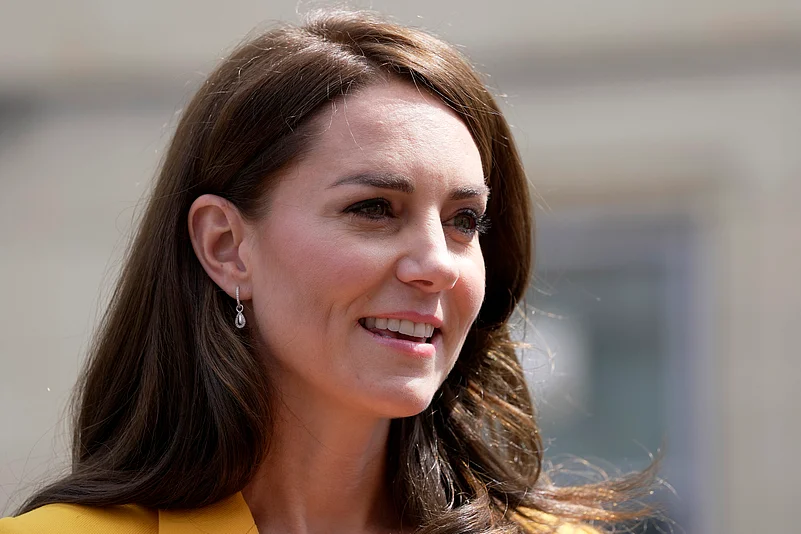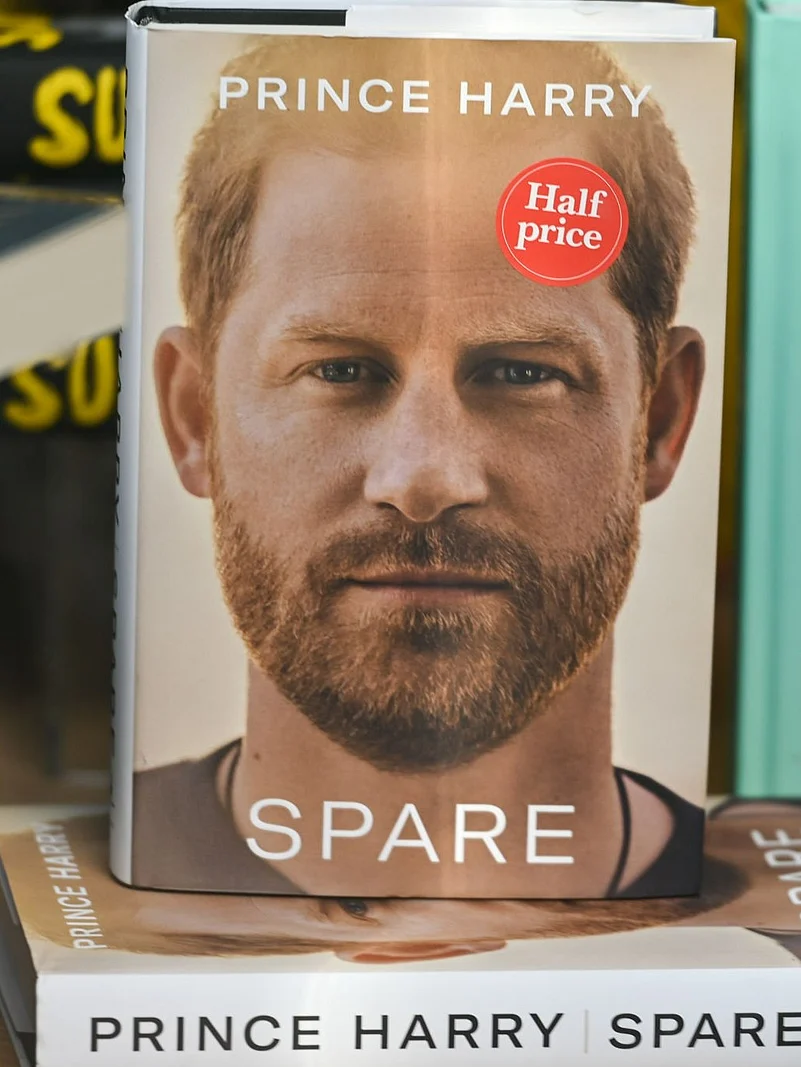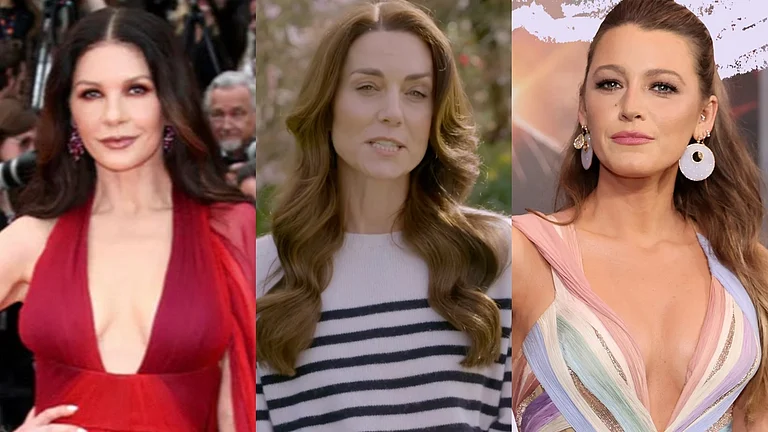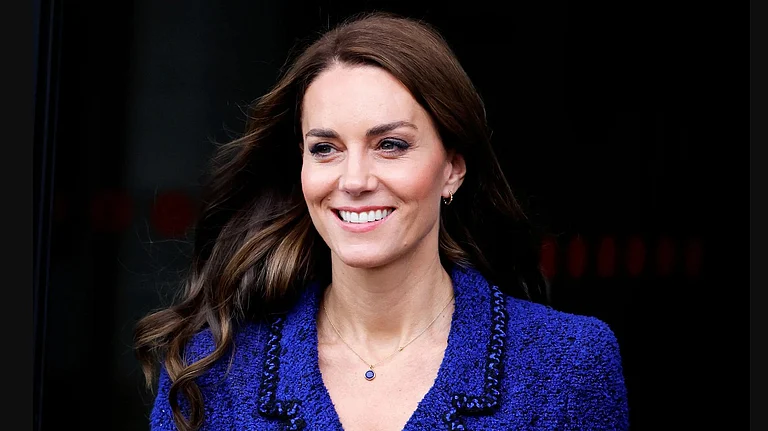In a heartfelt video message released on Friday, March 22, Catherine, Princess of Wales, disclosed that she has been diagnosed with cancer. The 42-year-old princess revealed that the disease was detected after she underwent "major" abdominal surgery in January and that she has since commenced chemotherapy treatment.
How Kate Middleton’s Cancer Diagnosis Adds To The Toughest Years For The British?Royal?Family
Balancing privacy with public accountability remains a challenge for the modern monarchy. The monarchy is also facing shifting dynamics within the Commonwealth, with some nations reevaluating their relationship with the crown.

The specific type of cancer has not been disclosed by Kensington Palace, which stated that Princess Kate began a course of preventative chemotherapy in late February. The news of her diagnosis has triggered an outpouring of support and comes at a challenging time for the royal family, reminiscent of the tumultuous year of 1992, famously termed as the "annus horribilis" by Queen Elizabeth II.
King Charles & Princess Kate's Health challenges and personal struggles
The revelation of Princess Kate's cancer diagnosis coincides with King Charles III's ongoing battle with cancer. Recently, Princess Kate Middleton was surrounded by controversies over photoshopped a photograph of her with Prince William and their kids. Later, she confessed to digitally editing the official royal portrait, sparking controversy after social media users spotted discrepancies.
In January, the king, who ascended the throne at the age of 74 following his mother's passing in September 2022, was admitted to a private London clinic for treatment of hypertrophic prostate. Similarly to Kate, cancer was discovered during the operation, although no further details have been provided about his condition.
The illnesses of both the king and the princess have placed additional responsibilities on Queen Consort Camilla and Prince William. As state advisors, they have been thrust into prominent roles, with Camilla assuming a significant portion of public duties in the absence of her husband. However, the relentless demands of royal obligations have taken a toll on her well-being, prompting her to take a much-needed week-long vacation earlier this month.

Challenges beyond health
Amid health crises, the royal family faces scrutiny over various personal matters, including the lingering scandal surrounding Prince Andrew. The prince's association with convicted sex offender Jeffrey Epstein continues to haunt him, particularly with the recent declassification of documents shedding light on his involvement. Additionally, the upcoming Netflix film, "Scoop," promises to reignite public interest in Andrew's controversial past.
Moreover, the family grapples with Sarah Ferguson's battle with skin cancer, highlighting the interconnectedness of royal relationships. Despite her divorce from Prince Andrew, Ferguson remains closely linked to the family, emphasizing the complexities within the royal household.
Prince Harry and Meghan Markle's Controversy
Meanwhile, Prince Harry and Meghan Markle, the Duke and Duchess of Sussex, continue to make headlines from their California residence. Their decision to step back from royal duties in 2020 and subsequent revelations about their experiences within the monarchy have stirred controversy
The British royal family is facing controversies due to the relationship between Prince Harry and Meghan Markle. Harry, Duke of Sussex, and Meghan Markle, Duchess of Sussex, have been living in California since March 2020 due to media persecution and dissatisfaction with their roles. Harry visited his father when he learned about his father's cancer, but his relationship with his brother Prince William is virtually nonexistent.

Harry's recent memoir, "Spare," further exposed rifts within the family, depicting a strained relationship between him and Prince William. Harry's memoir revealed that William even physically assaulted him in a fight. In California, sources close to the couple have stated that neither Harry nor Markle had information about Kate's situation. In January 2020, Prince Harry and Meghan Markle announced they were stepping away from their royal duties, following years of racist criticism and growing feuds between the brothers. Meghan and Harry moved to California and participated in an interview with Oprah Winfrey in 2021, revealing their side of the story.

The royal family has tried to project stability, but Prince Harry has made it difficult for them by securing high-profile collaborations that revealed disputes within the royal family. In December, Harry and Meghan Markle released a Netflix docuseries detailing their courtship and departure from royal life in the UK, and in January, Harry's memoir, Spare, became a bestseller.
Navigating Privacy and Public Scrutiny
The royal family's handling of personal matters has sparked debate over transparency and secrecy. Questions linger regarding the limited information provided about Catherine's illness and King Charles's cancer, fueling speculation and online rumors. Balancing privacy with public accountability remains a challenge for the modern monarchy, as it grapples with maintaining its mystique while addressing public inquiries.
The Monarchy in Transition
Amidst health crises and personal revelations, the monarchy faces shifting dynamics within the Commonwealth. Recent transitions to republicanism in Barbados and discussions among other Commonwealth realms reflect evolving attitudes towards monarchy. While the U.K. adapts to a new era under King Charles III, the future of its colonial ties remains uncertain, with several nations reevaluating their relationship with the crown.
As the royal family navigates these challenges, it seeks to uphold its traditions while adapting to modern expectations, demonstrating resilience in the face of adversity. The legacy of Princess Diana's humanitarian efforts serves as a guiding light, inspiring hope and unity during turbulent times.

Queen Elizabeth II’s death & Impact on the Commonwealth
The changing landscape of the Commonwealth is another factor shaping the future of the monarchy. While some former colonies have embraced republicanism, others maintain ties to the crown. However, discussions about the role of the monarchy persist, reflecting broader shifts in governance and national identity.
In the wake of Queen Elizabeth II's passing, several Commonwealth realms reconsidered their allegiance to the monarchy. Australia, Antigua and Barbuda, and St. Vincent and the Grenadines are among the nations reassessing their relationship with the crown. The transition to republicanism in Barbados marked a significant milestone, signaling potential changes across the Commonwealth.
The royal family's response to these developments underscores the need for adaptation and diplomacy. While respecting the sovereignty of each nation, the monarchy seeks to foster continued cooperation and partnership within the Commonwealth. The legacy of Queen Elizabeth II's reign serves as a foundation for future engagement, emphasizing shared values and mutual respect.
As the royal family navigates these challenges, it remains committed to upholding its role as a symbol of unity and continuity within the Commonwealth. Through dialogue and collaboration, the monarchy seeks to navigate a path forward that honors its traditions while embracing change in a rapidly evolving world.
- Previous Story
 Marburg Virus Outbreak In Rwanda Leaves 11 Dead | All About The Deadly Ebola-Like Virus
Marburg Virus Outbreak In Rwanda Leaves 11 Dead | All About The Deadly Ebola-Like Virus - Next Story




























